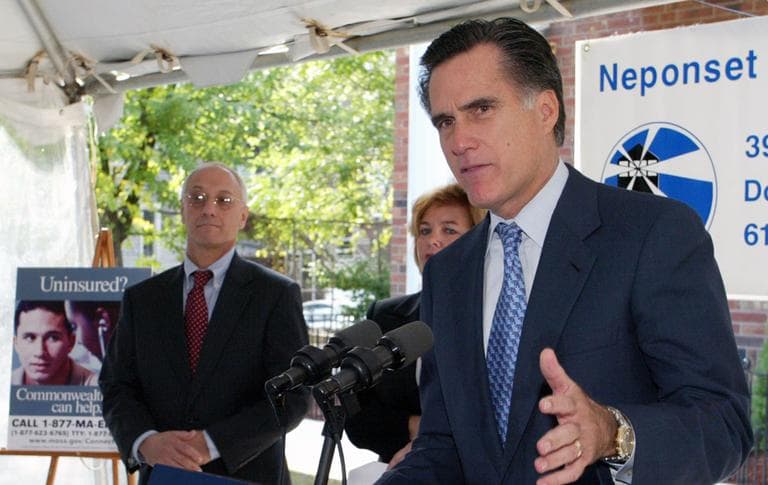Advertisement
New Yorker: 'Beware Of Romneycare' Sums Up Candidate Contrast On Health Care

When the New Yorker headlines this week's financial column "Beware of Romneycare," it's not referring to the Massachusetts version, the near-universal health coverage that then-Gov. Mitt Romney helped usher in. It's referring to the current Romney, who has made clear that if elected president, he will work to repeal the federal version of health reform, Obamacare.
Now, The New Yorker just endorsed Obama for president, so that may color your view of its columns. But the ever-excellent economics writer James Surowiecki does lay out with beautiful clarity the stakes of the coming election: "Health care is where the election's outcome will have the most immediate and powerful impact on how Americans live," he writes. And he zeroes in on the essence of the difference between the candidates:
[module align="right" width="half" type="pull-quote"]'It’s like saving on defense by protecting only two-thirds of the country'[/module]
"The premise of Obamacare is that healthcare is a collective good, like national defense, something that government has to help provide," he writes.
In contrast, he writes, what Romney wants...
..."is just to have the government less involved in health care. Insofar as his plans would lower federal health-care spending, it's not because of the power of the free market; it's because a Romney administration would simply have the government do less. Romney would eliminate the Obamacare subsidies for health insurance. He would turn Medicaid into a block grant to the states and trim its annual budget, with the result that its funding woudl lag behind the rise in health-care costs. And if he adopts his running mate Paul Ryan's premium-support plan for Medicare, he would make Medicare recipients pay higher premiums. With these changes, the government would spend less, but only because it would provide less, and Americans would get less. It's like saving on defense by protecting only two-thirds of the country"
Ultimately, he writes:
"The real issue, come November, isn't about who has the best ideas for controlling health-care costs. It's about who has the right idea about what government should do."
The full piece is very worth a read; it also includes a succinct history of the thinking on why the free market doesn't work well in health care.
This program aired on October 22, 2012. The audio for this program is not available.
